It’s easy to overlook signs of hope amid daily reports of gun violence, COVID-19 creep and corruption. But there’s progress in groups of committed Chicagoans working to address community needs, from police oversight to improving the ward redistricting process.
It’s worth cheering that, in a month’s time, 430 residents applied to serve on an independent committee to forge a new ward map for Chicago. A small group of volunteers painstakingly reviewed applications and conducted interviews with dozens of applicants. Now, 13 diverse Chicagoans are investing hours upon hours looking at neighborhood maps, talking to other Chicagoans and starting to draw a new path toward representation. No one on the Chicago Advisory Redistricting Commission knows for certain if their efforts will be accepted by members of the City Council, but they’re not deterred.
Sravan Suryadevara, a South Loop resident, teaches engineering, robotics and computer science courses in McKinley Park. His students motivated him to work on ward mapping.
“As someone who is passionate about voting, it was disheartening to hear young people dismiss this important privilege and responsibility, but I understand their indifference,” Suryadevara said. “Unfortunately, not all votes are equal in our democracy.
“Even a city like Chicago, one that leans heavily to one side of the political spectrum, can benefit from a citizen-led redistricting process,” he said. “My goal is not to drastically alter the city’s political landscape; it’s to show and advocate for an independent process that ensures every vote is important and equal. My hope is that bringing fairness, transparency and independence will motivate more young people, like my students, to vote and determine the future of their city.”
Social worker and organizer Drea Hall is a longtime Chicagoan who got involved because she firmly believes more people need to get engaged.
“I love the community. I love the people. I really feel like when it comes to political representation, our voices need to be at the table. And when we’re not at the table, it means that resources may not be where we need them,” Hall said. “I’m in Bronzeville. I love my community. We have good representation, but I think more voices need to be at the table and we need to know a little bit more details about what’s needed in our community, what’s maybe missing and what’s good that we could do more of?”
Through the summer, twice a week and sometimes more, these 13 commissioners from the North, South, central and West sides are gathering to get insight from their fellow Chicagoans. They’re drawing wards and will adjust and readjust them after Census data arrives mid-August. Once they settle on a final map, the hope is City Council members will consider it. If at least 10 out of 50 of them support this people’s map, that will trigger a special election next spring, which would allow Chicagoans to choose the map they prefer from among those receiving support from 10 council members.
Commissioners like Hall are encouraging their neighbors to come describe the hallmarks of their neighborhoods, what binds their community and the gathering places and characteristics of the people in them.
“The formation of boundaries, that empowers people,” Hall said. “When you’re empowered, you want to do better. You want to take care of the community. Here’s an opportunity for you to come out and weigh in on where you think you’re represented, where do the resources need to go and representation. Let’s talk about that some.”
As the first African American assistant director of civic engagement at the School of the Art Institute, getting involved might have come naturally for North Lawndale resident Apriel Campbell. She’s chaired several public hearings already and wants to keep listening and learning from Chicagoans. While in Lawndale, commissioners have heard from people in Chinatown and from Southwest Side residents via Zoom.
It’s about people in Chicago determining for themselves what ward boundaries serve them best for concerns about safety, schools, parks and pothole problems.
“How the district boundaries are configured can make the difference between empowering and maximizing the voters’ voices or minimizing and muting those voices,” Campbell said.
“I believe it is important for as many people from different backgrounds, geographies, and skills to be engaged in this process,” she said. “We are the voters, we are the people and the power should reside with the people.”
Madeleine Doubek is the executive director of Change Illinois, a nonpartisan nonprofit advocating for ethical government. It is supporting the work of the Chicago commission.
This article originally appeared on Crain’s Chicago Business.
